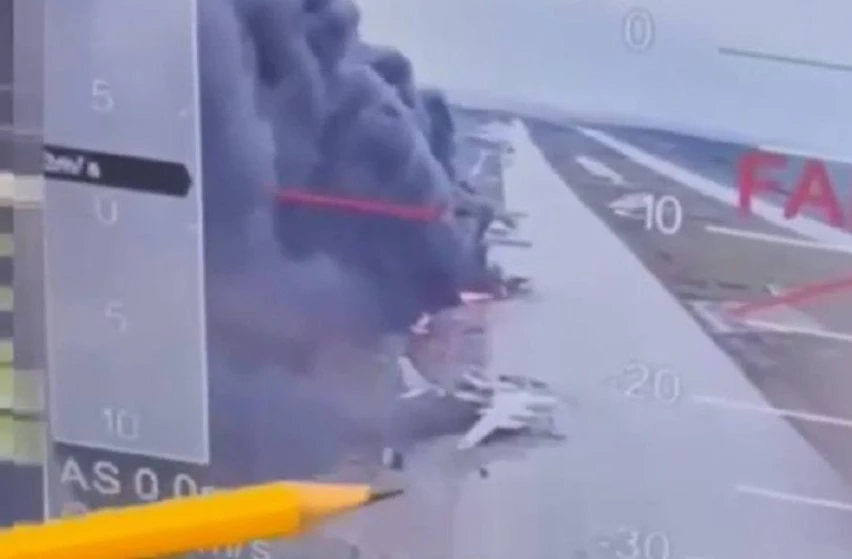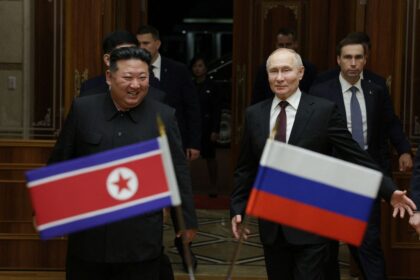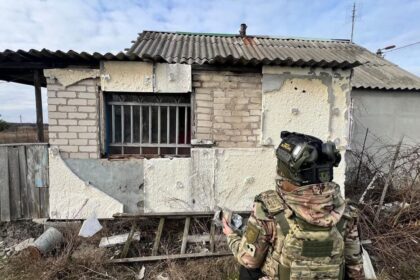**Ukraine’s Daring Operation Spiderweb: A $7 Billion Blow to Russia’s Strategic Aviation**
In a bold and daring move, Ukraine has conducted an unprecedented military operation, codenamed Operation Spiderweb, which has dealt a devastating blow to Russia’s strategic aviation capabilities. The operation, which was months in the planning, saw Ukrainian operatives launch 117 drones from concealed positions across Russia, striking five key airbases simultaneously.
The goal of the operation was clear: to neutralize Russia’s strategic bomber fleet, which had been conducting daily missile and bomb strikes on Ukrainian cities and key infrastructure. And it appears that Ukraine has achieved its objective with significant success.
**A Masterclass in Operational Logistics**
One of the most impressive aspects of Operation Spiderweb was the operational logistics involved. Ukrainian operatives covertly smuggled FPV drones into Russia, storing them in warehouses where they were assembled and placed in specially designed mobile wooden cabins mounted on rented trucks. These vehicles were then parked by regular drivers near each targeted airbase, allowing for the swift deployment of the drones when their roofs were remotely opened.
This level of ingenuity is a testament to the creativity and resourcefulness of Ukraine’s military planners, who have clearly been able to think outside the box in terms of planning and executing complex operations.
**A Blow to Russia’s Strategic Aviation**
The impact of Operation Spiderweb on Russia’s strategic aviation capabilities has been significant. At least 40 aircraft, representing approximately 34% of Russia’s strategic missile-carrying bombers, were hit or destroyed during the operation. This includes several Tu-95MS and Tu-160 aircraft, which are capable of carrying nuclear payloads.
The estimated losses exceed $7 billion, making Operation Spiderweb one of the most expensive and effective military operations in recent history. The full extent of the damage is still being assessed, but it’s clear that Ukraine has dealt a devastating blow to Russia’s strategic aviation capabilities.
**A Blow to Russian Credibility**
Operation Spiderweb has also dealt a significant blow to Russian credibility on the global stage. For too long, Russia has been able to portray itself as an invincible and formidable military power. But Operation Spiderweb has shown that Ukraine is capable of executing complex and effective operations deep within Russian territory.
This will undoubtedly have implications for Russia’s relationships with other countries in the region and beyond, and may even lead to a re-evaluation of Russia’s military strategy and tactics.
**A New Era of Military Operations?**
Operation Spiderweb marks a new era in military operations, where traditional notions of airpower and conventional warfare are being turned on their head. The use of drones as a primary means of attack has opened up new possibilities for military planners, and Ukraine is clearly at the forefront of this revolution.
As we look to the future, it’s clear that Operation Spiderweb will be remembered as a landmark moment in modern military history, and one that will have significant implications for the way we think about war and conflict.
**Conclusion**
In conclusion, Operation Spiderweb has been a resounding success for Ukraine, demonstrating its ability to execute complex and effective military operations deep within Russian territory. The impact on Russia’s strategic aviation capabilities has been significant, and will undoubtedly have far-reaching consequences for the country’s military strategy and tactics.
As we continue to follow developments in the Russo-Ukrainian war, one thing is clear: Ukraine is a force to be reckoned with, and its military planners are pushing the boundaries of what is possible in terms of operational logistics and effectiveness.












